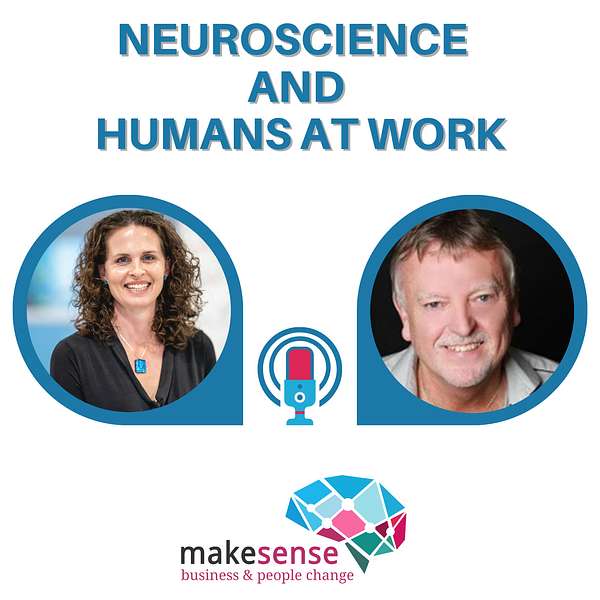
Neuroscience and Humans at work
Keeping up to date with the science behind what makes people tick is essential to realising our own potential but also the potential of those we work with. This fast-evolving subject is critical to the workplace.
Making Sense of Neuroscience and Humans at Work explores what happens in the brain and the wider body intelligence system alongside the concept of energetic connection to help equip leaders, managers and HR Professionals to create constructive cultures and bring out the best in their people.
The more we can build a reliable understanding of the human brain and intelligence system the more we can understand what goes on below the surface of human behaviour as well as the psychology of what goes on above the surface. Given our brains are shaped by the people and circumstances around us, we have an individual and collective responsibility to help make that a constructive experience.
This is essential to positively influence change, communicate more effectively, build high performing teams, make better decisions and create those thriving cultures that are often talked about but not always achieved.
Neuroscience and Humans at work
Making sense of Imposter Syndrome
In this podcast episode, Victoria and Clive embark on an exploration of Imposter Syndrome, a commonly discussed yet often misunderstood phenomenon. They tackle various facets of this subject, including its relevance across different age groups and its potential connections to the festive season.
The discussion kicks off by dissecting the definition of Imposter Syndrome as the opposite of authenticity, wherein individuals feel disconnected from their true selves, often due to unfamiliar situations. They delve into the brain's memory-based conflicts based on unfamiliar experiences, emphasising the historical voice urging individuals to avoid risks and stay within familiar territories.
The conversation explores the impact of Imposter Syndrome, looking at its effects, both minor niggles and potentially more severe manifestations. They touch upon the negative connotations associated with labelling oneself as having Imposter Syndrome, urging listeners to not let it become an ingrained identity.
There is a quick detour into the legal world, reflecting on how a solicitor considers they are meant to behave without much flexibility around that and acknowledging the strain that can put on authenticity. It is notes that insights are of course not limited to the legal world.
The discussion delves into the workplace implications of Imposter Syndrome, highlighting the importance of creating supportive environments that encourage reflection and self-awareness. Victoria and Clive emphasise the significance of personal growth, urging both self-development and organisational support as integral to navigating Imposter Syndrome.
The podcast concludes by addressing the importance of understanding and acknowledging Imposter Syndrome as a self-created construct, suggesting pathways for personal development that involve creating one's agenda and developing self-belief. Despite the challenge of finding an alternative title for the episode, the speakers encourage audience engagement for future discussions.
Key Emotions and Points Highlighted in the Podcast:
- Authenticity vs. Imposter Syndrome: Feeling grounded vs. disconnected from one's true self.
- Brain's Conflict & Familiarity: Historical voices urging risk avoidance vs. growth through unfamiliar experiences.
- Negative Connotations of Labels: Avoiding adopting Imposter Syndrome as a rigid identity.
- Workplace Environment: The role of organisations in fostering environments conducive to self-awareness and growth.
- Navigating Imposter Syndrome: Understanding, acknowledging, and developing pathways for personal growth.
This podcast provides a comprehensive exploration of Imposter Syndrome, offering insights into its origins, impacts, and strategies for personal development.
Happy Listening!